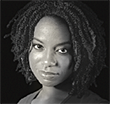By Jacqueline J. Holness
 As a graduate of the University of Georgia’s Henry W. Grady College of Journalism and Mass Communication, I find the rise of fake news repugnant. The term fake news created a cultural firestorm when it rose in relevance during the 2016 presidential election and its effects continue to reverberate a year later. Fake news is defined as “news articles that are intentionally and verifiably false, and could mislead readers,” according to economists Matthew Gentzkow of Stanford University and Hunt Allcott, who released the Stanford University study, “Social Media and Fake News in the 2016 Election” in January.
As a graduate of the University of Georgia’s Henry W. Grady College of Journalism and Mass Communication, I find the rise of fake news repugnant. The term fake news created a cultural firestorm when it rose in relevance during the 2016 presidential election and its effects continue to reverberate a year later. Fake news is defined as “news articles that are intentionally and verifiably false, and could mislead readers,” according to economists Matthew Gentzkow of Stanford University and Hunt Allcott, who released the Stanford University study, “Social Media and Fake News in the 2016 Election” in January.
Contrary to what some may believe, fake news, by definition, did not originate last year as noted in the study. “One historical example is the ‘Great Moon Hoax’ of 1835, in which the New York Sun published a series of articles about the discovery of life on the moon.” According to the study, however, fake news is on the rise for several reasons. One reason is that “social media [platforms] are well-suited for fake news dissemination, and social media use has risen sharply: in 2016, active Facebook users per month reached 1.8 billion and Twitter’s users approached 400 million.” Another reason for the rise of fake news is because “Gallup polls reveal a continuing decline of ‘trust and confidence’ in the mass media ‘when it comes to reporting the news fully, accurately, and fairly.’”
The hubbub around fake news has made it a topic of conversation in Christian circles as well. The Barna Group published an article, “Media Habits in the Age of ‘Fake News,’” and reported that 51 percent of Evangelicals, 46 percent of Republicans, and 40 percent of practicing Christians believe that liberal journalism is the source of fake news. “What is surprising is that Democrats (20 percent), liberals (23 percent) and those of no faith (22 percent) are not quite as willing to similarly blame rightwing media; the top response from each of these groups was that fake news stems from mishandling of information on social media.” To collect this data, Barna Group researchers conducted a minimum of 1,000 interviews in each of four studies from November 2016 through February 2017.
Some are blaming Christians for spreading fake news. In a May Christianity Today article, “Christians Repent (Yes, Repent) of Spreading Conspiracy Theories and Fake News—It’s Bearing False Witness,” Ed Stetzer accused Christians of spreading falsehoods about Seth Rich, a Democratic National Committee member who was murdered last summer. “The Seth Rich conspiracy theory is a textbook example of false witness. Most of those who shared, posted, or tweeted the conspiracy had done little or no research,” wrote Stetzer, who is the Billy Graham Distinguished Chair of Church, Mission, and Evangelism at Wheaton College. In the April New York Times article, “The Evangelical Roots of Our Post-Truth Society,” Molly Worthen wrote, “Conservative evangelicals are not the only ones who think that an authority trusted by the other side is probably lying. But they believe that their own authority—the inerrant Bible—is both supernatural and scientifically sound, and this conviction gives that natural human aversion to unwelcome facts a special power on the right.” Worthen is a professor and the author of Apostles of Reason: The Crisis of Authority in American Evangelicalism.
However, some have an alternative view of Christians and the proliferation of fake news. Conservative Christian talk show host Erick Erickson lambasted Worthen’s article in his piece, “On Holy Thursday, the New York Times Blames Christianity for Fake News” on his website theresurgent.com. “It is very telling that a liberal, secular professor like Worthen cannot actually even engage facts and accuracy truthfully as she makes her case that Christians are to blame for the ‘post-truth’ era.” Wilshire Baptist Church Associate Pastor Mark Wingield wrote that Christians have been the targets of fake news in the March article, “The Fake Out: Why it Matters that Some Christians are Embracing Fake News” on baptistnews.com. “There are other times, though, when Christians have been the victims of fake news rather than the perpetrators of it. Our Baptist forebears were branded as child abusers for refusing to baptize their infants.”
As a Christian, I know that my beliefs are implausible, even fake news to some. In addition, as a journalist, I strive for accuracy and fairness in my reporting although the news media is often not trusted. I hope that all Christians employ their faith and a desire for accuracy and fairness as we evaluate the news.
Jacqueline J. Holness, a member of Central Christian Church in Atlanta, is a correspondent for Courthouse News Service. Read more on her website (afterthealtarcall.com).



Comments: no replies